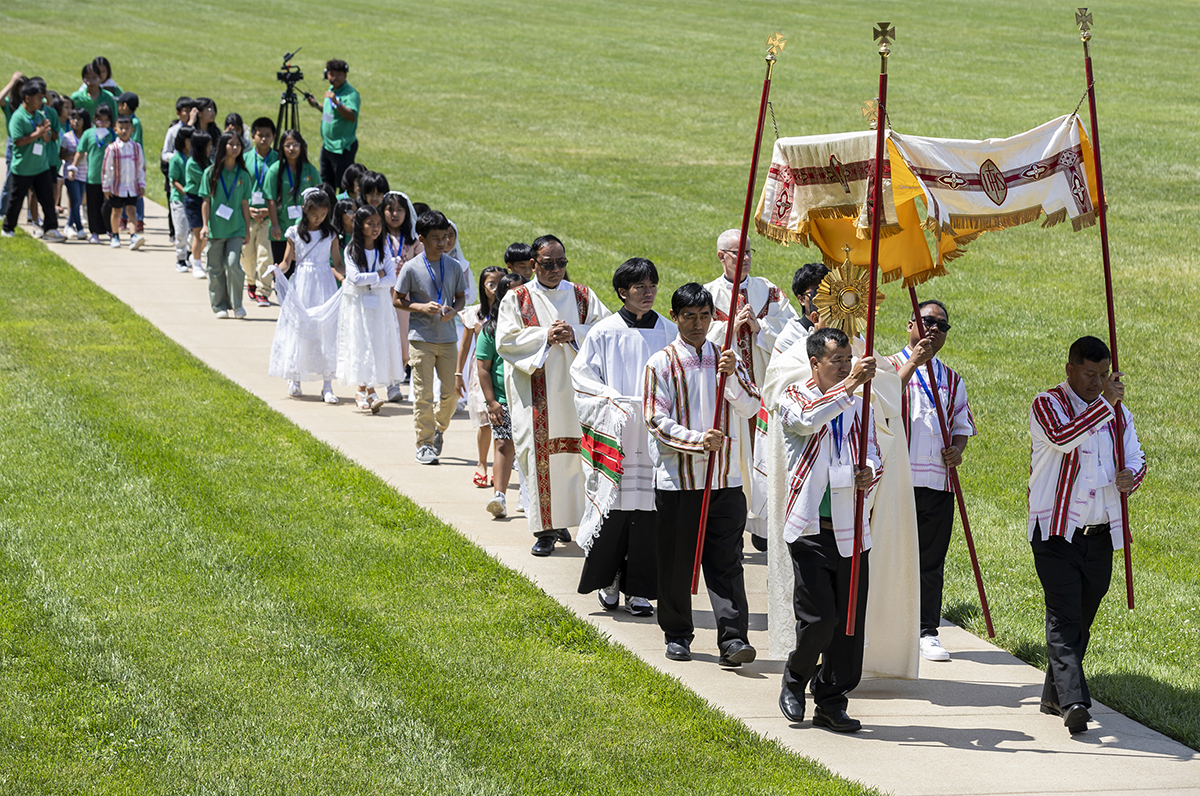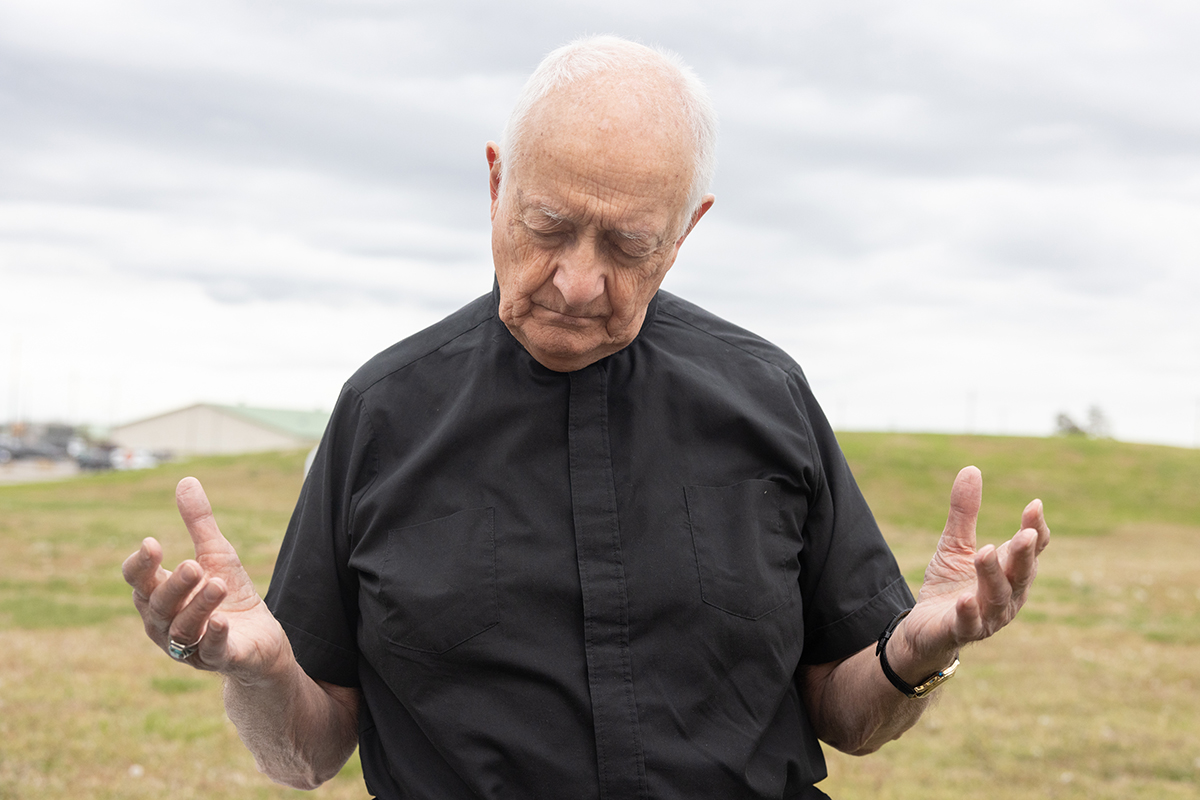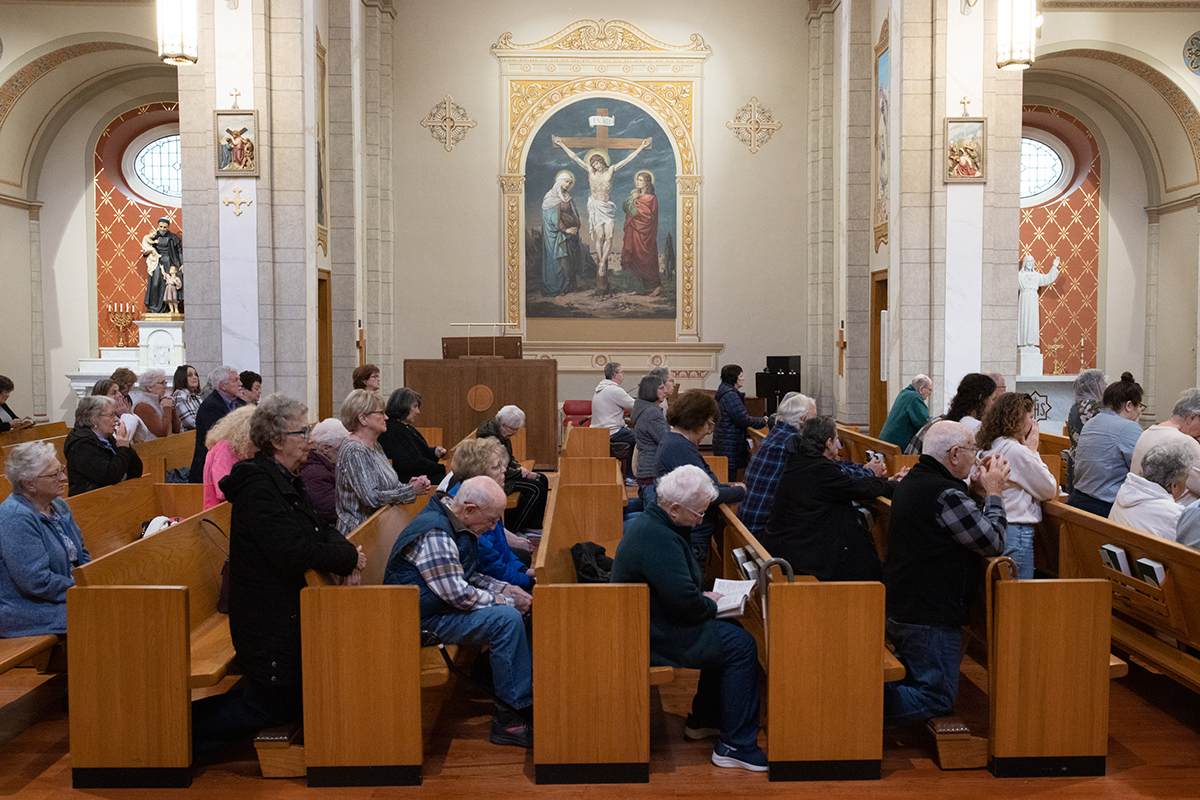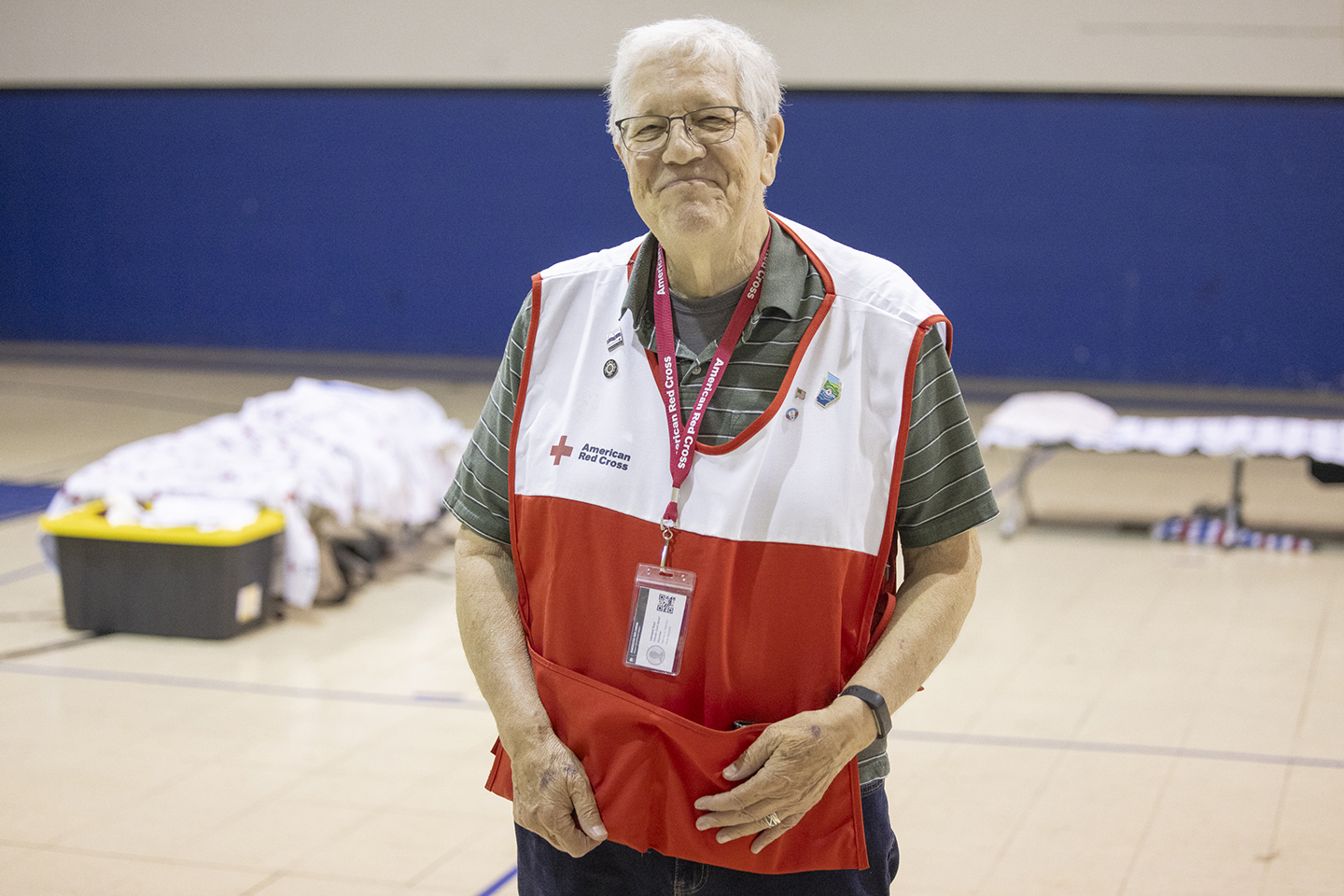Corpus Christi procession weaves among eclectic vibe of Delmar Loop
How do you bring Jesus to people along the Delmar Loop, with its eclectic mixture of culture, restaurants and shops?
March Him down the boulevard.
That’s what the Oratory of Sts. Gregory and Augustine did on the Feast of Corpus Christi. It was an unofficial “hello” of sorts from the community, which celebrates in the Tridentine Latin Mass (according to the 1962 Missal). The oratory is the Loop’s new neighbor.
Founded at St. Louis Abbey in west St. Louis County the oratory was transferred in May from the care of the Benedictines to All Saints Parish in University City. Msgr. Michael Witt will serve as rector of the oratory, in addition to maintaining his role as pastor of All Saints. (See related.)
Escorted by University City police, the procession started at the church and wove through the streets to Delmar Boulevard. With the Real Presence of Jesus leading under the shade of a canopy, the people in the procession prayed the Rosary, quite aware of the attention they were getting from patrons along the Loop.
Eric Koehn stood watch along Delmar as he held his 2-year-old son, Yohann, as they were waiting to eat at Meshuggah Cafe. It was his first time witnessing a Corpus Christi procession.
“My first impression was maybe it was a Jewish wedding,” he said. “But I could tell obviously it wasn’t. I saw someone dressed in a white gown. But it didn’t look like a wedding.” The white gown turned out to be several girls (and a boy) who made their First Communion that day.
When explained that the procession is a centuries-old tradition of the Catholic faith to process the Real Presence of Jesus — the Eucharist — in public, Koehn reacted in awe. “I was thinking this is a great thing to see somebody use the street for ritual. It’s beautiful. I’d love to see more of it.”
The feast of Corpus Christi was established in Liege, Belgium, in 1247. Pope Urban IV extended it to the universal Church almost two decades later, and the Corpus Christi procession followed soon after. Centuries later, the tradition continues at many parishes in the Archdiocese of St. Louis, including at the Cathedral Basilica of St. Louis.
Pope Benedict called the Corpus Christi feast and procession important opportunities for Catholics to reaffirm their faith in the Real Presence of Jesus in the Eucharist.
“With awareness of being inadequate because of our sins, but needing to be nourished by the love that the Lord offers us in the Eucharistic sacrament … we renew our faith in the real presence of Christ in the Eucharist,” he said.
Amy Carapella, whose 9-year-old son, Carlo, 9, was among the First Communicants that day, described the procession as “monumental.”
“As we processed in the streets and saw the fullness of the Holy Trinity in the Body of Christ, I just kept hearing, ‘God’s got this,'” she said. “With the angels going before Him and His lambs following behind Him, it was a beautiful unification of the community and a statement of our faith and God and His True Presence — and also in the magnitude of who He is in this world.”
Carlo Carapella reveled in the fact that the procession made his First Communion day extra special. Knowing that the bread and wine truly become the Body and Blood of Jesus in the Mass, Carlo described the experience of receiving Communion for the first time.
“I was a little more happier and I felt the grace that was given to me,” he said.
>> Tridentine Latin Mass at the Oratory of Sts. Gregory and Augustine
With the help from tutors, DVDs and YouTube, Msgr. Michael Witt is learning how to celebrate the Tridentine Latin Mass, according to the 1962 missal — otherwise known as the Extraordinary Form of the Mass.
Novus Ordo Masses in English — the post-Vatican II Mass — will continue to be celebrated at All Saints 7 a.m. Monday-Friday (in the chapel) and 9:30 a.m Sunday. The church has added two Latin Masses on Sundays at 7:30 and 11:30 a.m.
The pastor of All Saints and professor of Church history at Kenrick-Glennon Seminary, Msgr. Witt has been studying the language and rubrics of the Mass under Father Samuel Weber, OSB, for several months. Still recovering from knee surgery, Msgr. Witt hopes to be back at it at All Saints by early July.
Msgr. Witt joked that one of the biggest hurdles to learning the Latin Mass is shifting his mindset from Germanic pronunciation (he often prays the Divine Office in German) to the more phonetic approach with Latin.
“The Latin itself is not difficult,” he said. “Once I get the accents down and soften my mouth — I have a very guttural German — all that’s left is to remember when to bow and genuflect and cross yourself. It’s just a beautiful ritual.”
The opportunity has been nostalgic. As a 13-year-old, he served the 7:15 a.m. Latin Mass for Msgr. John Holland at the old St. Patrick Parish in University City.
All Saints parishioners have welcomed the oratory since its move, even helping to set up the parish hall for a St. Joseph feast day celebration. The buzz is also spreading via messages from the mayor of University City and a neighborhood newsletter.
“I see this as an opportunity to come into contact with a community that is supportive of the Latin Mass,” Msgr. Witt said, adding that plans are for a handful of young priests from the archdiocese to help with celebrating Mass.
“It’s a great opportunity for the young people and their children to meet young, energetic priests,” he said. “It’s a win-win for everybody.”
RELATED ARTICLE(S):Archdiocese set to celebrate Corpus Christi
How do you bring Jesus to people along the Delmar Loop, with its eclectic mixture of culture, restaurants and shops? March Him down the boulevard. That’s what the Oratory of … Corpus Christi procession weaves among eclectic vibe of Delmar Loop
Subscribe to Read All St. Louis Review Stories
All readers receive 5 stories to read free per month. After that, readers will need to be logged in.
If you are currently receive the St. Louis Review at your home or office, please send your name and address (and subscriber id if you know it) to subscriptions@stlouisreview.com to get your login information.
If you are not currently a subscriber to the St. Louis Review, please contact subscriptions@stlouisreview.com for information on how to subscribe.







